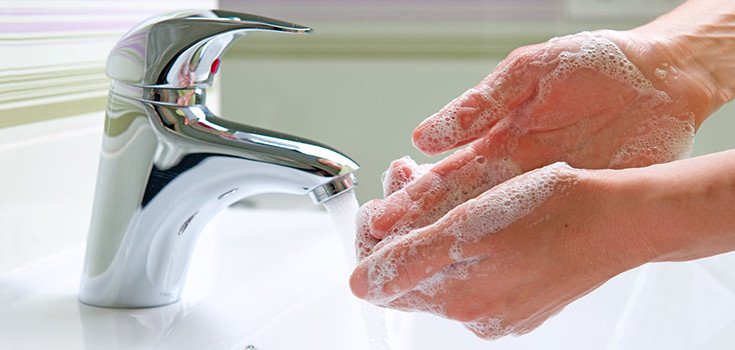Triclosan a Hazardous Antibacterial Agent, Works ‘No Better than Regular Soap’

Cold weather will soon be here, kids are bringing home colds from school, and flu season is right around the corner – so parents are beginning to focus even more on antibacterial soaps and hand sanitizers. But scientists in Korea have found that antibacterial soaps are a waste of money and don’t work any better than regular soaps. What’s more, the use of antibacterial soaps and hand sanitizers is contributing to the development of bacterial superbugs.
Not only that, but many antibacterial soaps are bad for you, too.
The Journal of Antimicrobial Chemotherapy published a new study that found that antibacterial soaps aren’t any more effective than regular soaps for regular handwashing. [1]
Antibacterial soaps contain triclosan, and when bacteria are exposed to the substance for hours a time, triclosan does prove to be stronger than regular hand soap ingredients. But that doesn’t really matter, because most people spend mere seconds washing their hands, not hours. Further, there are a number of triclosan dangers most people aren’t aware of.
The legal limit for triclosan concentrations in products is less than 0.3%. Combined with short-and-sweet hand washing times, that amount is not enough to have an antibacterial effect. [2]
“[The] antiseptic effect of triclosan depends on its exposure concentration and time,” explained study co-author Min Suk Rhee, a professor in the department of biotechnology and the department of food bioscience and technology at the College of Life Sciences and Biotechnology at Korea University in Seoul.
So, not only are triclosan-containing products a waste of time and money, there is evidence to suggest the antibacterial agent may be dangerous to human health.
According to the Food and Drug Administration, “triclosan is not currently known to be hazardous to humans,” the agency’s website reads. “But several scientific studies have come out since the last time FDA reviewed this ingredient that merit further review.” [3]
The body of research includes animal studies suggesting that triclosan alters hormone regulation in animals. Last year, a study published in the journal Proceedings of the National Academy of Sciences found that triclosan promotes liver tumors in mice.
“The FDA has raised concerns about the safety of triclosan, and this study shows it may not provide any benefit anyway,” he said.
Dr. Leonardo Trasande, an associate professor with the departments of pediatrics, population health, and environmental medicine at NYU Langone Medical Center in New York City, says:
“So, I would say that in most cases plain soap does the trick. Which is what moms have been saying since the 1930s and ’40s. Turns out they were right.”
Some studies have also indicated that triclosan might contribute to the development of bacteria that are antibiotic-resistant. Triclosan, which is itself an antibiotic, is found not only in soaps, but also toothpaste and some dishwashing liquids. It has been shown to prevent gum disease. But when it goes down the sink, it winds up in the water supply and in the soil.
Drug-resistant “superbugs” have been in the news very recently: a super strain of gonorrhea is sweeping through parts of England, drug-resistant super lice are invading schools, and the State of the World’s Antibiotics 2015 report reveals that antibiotic drug-resistance is increasing in developing countries.
Save yourself some money and stick with plain, ‘old-fashioned’ soap.
Additional Sources:
[2] HealthDay
[3] NPR
